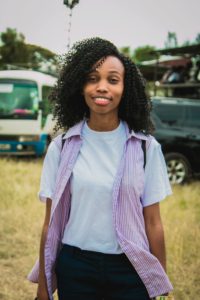Groundbreaking Workshop on AI and Technology-Facilitated Gender-Based Violence at AWiM24
Trending
Saturday May 31, 2025
Trending

There is no lie in the claim that social media is a power tool in discovering opportunities that are way beyond what we expect. I learned about African Women in the Media through a social media post from an acquaintance. Since the pandemic has created a lot of spare time, I decided to research about the organization online. To my surprise, there were lots of opportunities on AWIM’s website and that’s how I got to know about the RCCE training. The requirements included pitching on a health story and I decided to take the task. Little did I know that I would be among the 200 East African female journalists out of 600 applicants to be selected for the programme.
The program exceeded my expectations in so many ways. For one reason it provided insights on various new fields in health journalism that I had never given much concentration before. For another, it created a new understanding on how important it was to tell health stories from a neutral perspective. The quizzes and activities provided on the courses after each topic were fair assessments to ensure that one had understood the topics studied.
Safety for journalists by Vicensia Fuko made me realize the importance of keeping myself safe in the line of duty either online, physically and even mentally. Most of the time, many journos don’t consider their safety when doing stories or even in the cyberspace. This course stresses that journalists should always have an exit plan whenever covering any story. There is still an increase in threats, killings, harassment and intimidation and this course clearly explains the need for security and safety for female journalists.
Secondly, Ethical Health Reporting by Sumeya Gasa was not only informative but also enjoyable. This course is very interesting as it gives real life case studies which are highly applicable. The course emphasizes need of understanding how to report ethically in all situations. For many years, I thought that it is always important to report in an objective point of view since it leads to bias. However, after interacting with Sumeya in our live sessions I learnt that it wouldn’t hurt to do a story using a little subjectivity as it can be used to show a story at a personal perspective or angle. What is more, through this course I discovered that in any bureaucratic system, it is important to consider who our sources are.
It’s funny how I will always shy away from doing mathematical calculations. I was never a mathematical guru to begin with. Nonetheless, Accessing, Interpreting and fact checking information by Dr. Joannie Bewa made me realize that we can never run away from doing calculations especially when we need to understand the distribution and determinants of a disease or health related events. It is through this course that I got to understand the basis of doing a research (either qualitative or quantitative) with the aim of achieving data accuracy. I also learnt that it is important to fact check data to ensure its validity.
Most of the time, when you think about doing a scientific story or research, you imagine the vast vocabulary and knowledge you need to have. Balanced Health reporting by Esther Nakkazi enabled me to understand the basics of health reporting. Despite the fact that science is quite rigid and most people consider it only for nerds and geeks, the trainer uses layman’s language that is quite easy to understand. She also emphasizes the need to spot fake news either through verifying content or images. There has been a wide spread of fake news in the information era, and due to this we need to identify the veracity of day.
Currently I am learning about Automated Journalism by Blaise Aboh and Identifying gendered angles by Ruona Meyer. I am sure that these courses not only aid in my storytelling but also exceed beyond my expectations.
Clearly, being in the RCCE program has opened my eyes I’m more ways than I could ever have imagined. It has also shaped my thinking with the ever changing trends in storytelling. I am proud to be among the first cohorts of the AWiM Learning hub.
We’re not gonna spam. We’ll try at least.

Copyright 2020. African Women In Media
Copyright 2020. African Women In Media
Recent Comments